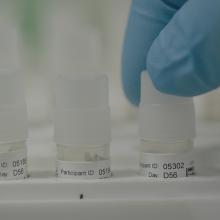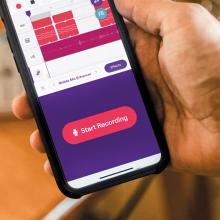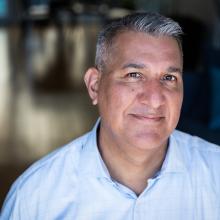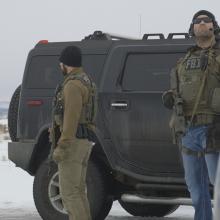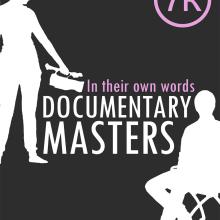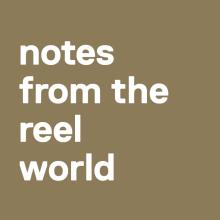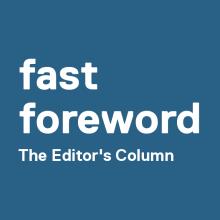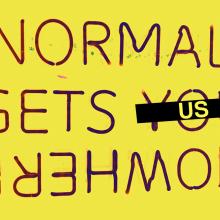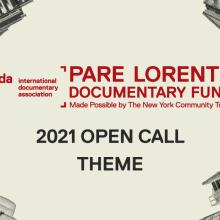Like many of us struggling through the pandemic, Kizzy Corbett has turned to guided meditation to help manage her anxiety. But Corbett has more to worry about than most: The 35-year-old immunologist has spent the last year leading the National Institute of Health’s Vaccine Research Center team in partnering with Moderna to develop a vaccine. “When you give 30,000 people a vaccine or a placebo and allow them to go out into the world, you are really asking the world to give you the answer,” she says in an interview on her couch, the smoke from incense wafting around her. “There’s really nothing
Latest Posts
When may a documentary producer record a telephone call or conversation? On January 2, 2021, former President Trump and his counsel called Georgia Secretary of State Brad Raffensperger to cajole, berate and threaten him to find votes and overturn his state’s election result. The Washington Post published the transcript and audio of the hour-long call the next day. Other journalists and publications followed suit and released the recording. Was it lawful for the Georgia Secretary of State to record the Trump telephone call? Was Raffensperger required to ask for consent or advise Trump and his
Richard Ray Perez succeeds Simon Kilmurry as the Executive Director of the International Documentary Association (IDA).
Documentary filmmaking, like other forms of investigative journalism, relies on sources and subjects who are willing to speak candidly and provide information—including in on- and off-camera interviews—sometimes at great risk to themselves. For that reason, especially for projects that tackle sensitive or dangerous subject matter, documentary filmmakers and other journalists often find themselves engaged in extensive, time-consuming efforts to build relationships of trust with their sources and subjects. The Federal Bureau of Investigation (FBI) has a long (and troubling) history of co-opting
Los Angeles, CA (May 10, 2021) - The International Documentary Association (IDA) and XRM Media announced the launch of a new international fund to support short vérité documentaries with an emphasis on emerging filmmakers. The IDA+XRM Media Incubator will provide three filmmakers with $25,000 each. In addition, each grantee will be paired with an award-winning director who will serve as a mentor. They are Academy award-nominated directors Skye Fitzgerald ( Hunger Ward) and Smriti Mundhra ( St. Louis Superman), and Emmy award-nominated director Nadia Hallgren ( Becoming). Applications for the
In Their Own Words: Documentary Masters Vol. 1, written by Alex Heeney, Elena Lazic and Brett Pardy, is a compact eBook from Seventh Row that is designed to give novice filmmakers an introduction to the craft and philosophy of nonfiction filmmaking. The volume offers a selection of transcribed short interviews with ten critically acclaimed filmmakers. Each discusses a range of topics related to one or more award-winning films they have made, explaining the key steps and decisions in their artistic process, from concept to completion. What is immediately striking about In Their Own Words is its
Dear Documentary Community, My hope as the past year came to a close—a year that saw a steady and seemingly unending stream of challenges—was that our real commitment to social justice, with “our” referring to the collective and not just the members of any particular disenfranchised group, would continue as a priority and not settle into something that we would merely reflect on as one of the many transformative things that happened in 2020, but whose priorities remained in 2020. We each have a role to play—and part of my responsibility as a thought leader in this space is to make sure that I
Dear Readers, Spring summons the clichéd trickle of hope and reemergence, but the 2021 edition is coming on with the potential of a righteous, mighty stream. With a new US Presidential administration, a reconstituted Senate, a massive COVID relief package, a rollout of vaccines and an amplified reckoning with racial injustice, the nation may still be divided but the drive for a true democracy is in high gear. In our documentary community, we carry forward the spirit of Getting Real ‘20, building a more robust and representative world of stakeholders. The loosely defined collection of features
As we approach one full year living under the cloud of a devastating global pandemic, so much has been destabilized around the world. The levels of grief and loss we’ve experienced have been overwhelming, and so have the revelations. This time has been a reminder to those not paying attention that inequality, injustice and racism continue to permeate many of our social and political structures, as well as universities and cultural organizations—even those who have for so long presented themselves as progressive. Being quarantined from our increasingly hypernormal lives brought into deeper
This past year was challenging and full of despair. The names of George Floyd, Breonna Taylor, Ahmaud Arbery and numerous others lost to police brutality and white supremacy galvanized a nationwide movement—a reckoning long overdue. It was also the year the COVID-19 pandemic devastated our communities, especially impacting communities of color at the frontlines of the pandemic—the essential workers so quickly dismissed as low-skilled by a society that thrives off their precarity. And it was the year that forced many of us to grapple with our own mortality and the resilience of the communities
